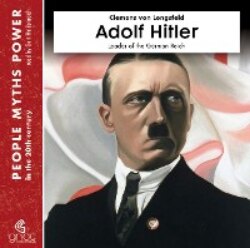Читать книгу Adolf Hitler - Clemens von Lengsfeld - Страница 9
На сайте Литреса книга снята с продажи.
ОглавлениеGlory in victory and catastrophe
On a warm sunny June day, it was the 28th and the year 1914, an assassination took place in the Balkan city of Sarajevo. The victims were high-ranking personalities, the heir presumptive to the Austrian throne, Archduke Franz Ferdinand and his wife Sophie von Chotek, Duchess of Hohenberg. This bloody deed brought about further bloody deeds and was regarded as the trigger of the First World War. It would be going into too much depth to mention all the political events in detail. Events characterised by high-handedness and errors of judgment and by the fated colliding of the most varied of interests, fuelled by the burning ambition of the military elites and carried by the naive enthusiasm of the population.
The alliance already forged by the Iron Reich Chancellor, Otto von Bismarck, between the empires of Austria and Germany, now had to prove itself in the imminent military conflict. The German Kaiser, Wilhelm II, assured his “loyal friend and dear cousin” in Austria, Franz Joseph I, of his loyalty in his now famous address on the balcony of the Berlin Stadtschloss [= City Palace]: “If it comes to a fight then all parties will come to an end! [...] I will no longer know any parties or denominations; today we are all German brothers and only German brothers. If our neighbour does not want it any other way, if he is not granting us peace, then I hope to God that our good German sword will emerge victorious from this difficult battle.”21
Double portrait of Kaiser Wilhelm II and Kaiser Franz Joseph I of Austria.
Production by German arms manufacturers had been running at maximum capacity for a long time. The heads of German heavy industry, Krupp and Thyssen, thereby saw their hopes fulfilled of finally profiting from their expensive investments in advanced weapons of mass destruction. But the young men in field grey uniforms did not have the slightest inkling of this as they marched through the Brandenburg Gate in a column without end. Nor did the women and children who lined the streets and gave those marching by buttonholes and cheered them on. Such scenes were taking place throughout the German Reich and in Austria. Whereby the soldiers looked serious and full of confidence into the crowds standing around them, filled with their own self-importance and the diffuse expectation of whatever it was they were unacquainted with, but which was promised to be something that would forge them into a man just like a steel bath. They climbed aboard goods wagons inscribed with the slogan “For breakfast in Paris” and headed off into an uncertain future.
August 1914 in Berlin: a troop transport with gaily waving soldiers shortly before departing for the front.
They had obeyed the summons of their Kaiser, which had been published in the extra editions of all major newspapers on 7 August 1914. In gigantic letters there stood: “To the German People!” His words were also transmitted as a radio address:
“And now the sword must decide. In the midst of peace the enemy attacks us. And so to arms! Any wavering or hesitation would be treason against the Fatherland! It is about the existence or non-existence of our Reich, which our fathers founded afresh, about the existence or non-existence of German might and German existence. We will defend ourselves until the last breath of man and steed.”22
The Germans and the French, the sworn and hereditary enemies, now stood facing each other, filled with an uncertain hatred and a glowing furore, which discharged itself in a long held back explosion. They stormed and stabbed each other with their bayonets and during the whole time did not have an idea why and how everything had started...
German soldiers and mule with gas masks during the 1st World War on the Western Front.
But there was also bitter fighting on other fronts as well. The alliance partners Germany and Austria were surrounded on all sides in the end.
